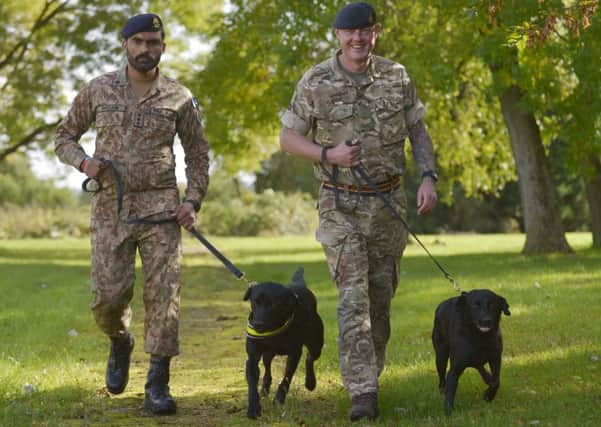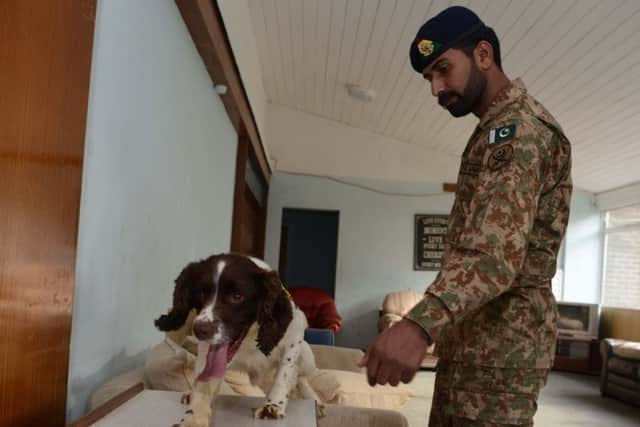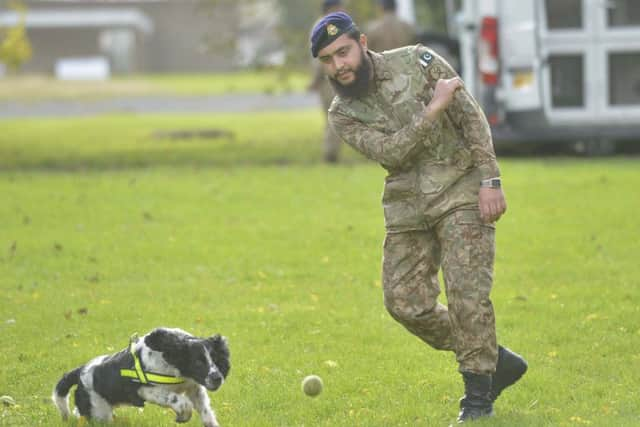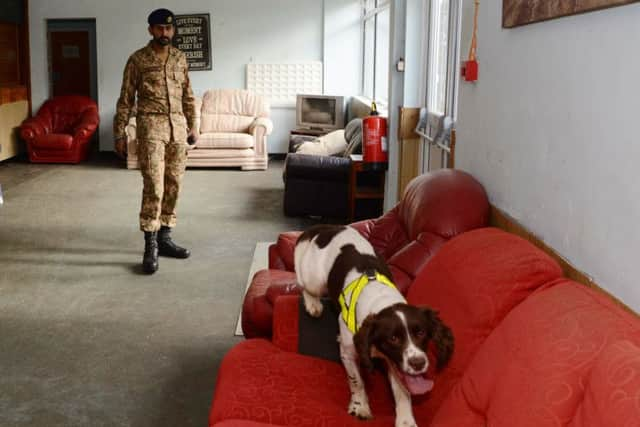Royals see how Melton military dog trainers teach Pakistani army handlers


The visit of Prince William and Kate to the new Pakistan Army Canine Centre in Islamabad - part of a four-day royal tour - gave them the chance to see first hand how the defence partnership between the host nation and the UK has developed over the past 10 years.
Skills learned by the handlers at the town camp are helping the Pakistan security forces tackle the country’s Improvised Explosive Device (IED) threat.
Advertisement
Hide AdAdvertisement
Hide AdA team of six military working dog handlers from the Pakistan Army’s Remount Veterinary and Farm Corps returned home recently from a six-week explosive detection dog handling course held at the Remount Barracks in Melton.


The course saw the Pakistani Army veterinary technicians and veterinary surgeons gain an understanding of how the British Army train their dog handlers to work with dogs who specialise in finding explosive material.
The course was a mixture of practical and classroom lessons and taught the Pakistani soldiers the techniques and procedures used by British Army military working dog handlers.
This included the patterns used to carry out a search, how to identify high risk areas and how to guide the search dog through the search.
Advertisement
Hide AdAdvertisement
Hide AdCaptain Shoaib, from the Pakistan Army, said: “We’ve learnt a lot, it’s been marvellous.


“There are some things we are doing best in Pakistan and there are some things the British do best.
“There is always room for improvement and the training we’ve had will be of great benefit to us.”
The British Army has also sent a short term training team from the 1st Military Working Dog Regiment, based at St George’s Barracks, North Luffenham, to the Pakistan Army Dog Centre and School to help them train their own explosive detection Dogs.
Advertisement
Hide AdAdvertisement
Hide AdThe Second-in-Command of the DATR, Maj Drew Tootal, said: “The six-week course is an opportunity to share knowledge.


“We have extremely experienced dog trainers across the whole of defence who have spent their whole military careers working in this field.
“The students take back with them our techniques and procedures and some of the background work including veterinary care and husbandry that we carry out to ensure we have happy and healthy working dogs.”
He added: “People may not necessarily appreciate the whole package that goes into looking after our military working dogs, including the training in husbandry and veterinary care, so we are all proud to see our techniques, our students and our people recognised at an international level for their good work.”
Advertisement
Hide AdAdvertisement
Hide AdMilitary working dog training is one element of the UK’s wider programme of defence engagement with Pakistan, which seeks to build capacity within the Pakistan Army to assist them in countering security challenges.
The relationship enables the training of Pakistani officers at the Royal Military Academy Sandhurst, the Joint Command and Staff College and the Royal College of Defence Studies.
UK Defence Engagement activity is building capacity in countering improvised explosive devices, developing medical emergency procedures and advising on airfield security.
Next year UK Defence will host the 5th Pakistan UK Stabilisation Conference to help both nations to better understand regional security challenges as we enter a new decade.